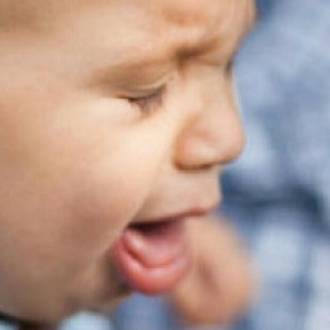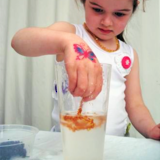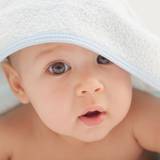Quick guide to kids coughs
|
Check out our quick guide to kids coughs and coughing - common types of coughs you might come across this winter. Kids coughing is not uncommon at this time of year, but would you be able to recognise what sort of cough it is and how to treat it? Here are some of the more common types of coughs, symptoms and how you can help treat them.
|
You might also be interested in ...
Testing Baltic Amber jewellery for authenticity
Is your baby’s Baltic Amber necklace the real deal? There's a lot of amber on the market in New Zealand right now and at first glance it's difficult to tell if it's genuine Baltic Amber or plain amber, copal, or plastic. Try one of these tests to determine if the amber you have is authentic.
What can babies see?
There’s been lots of discussion about what babies can see from a young age and it’s something that has fascinated scientists for decades. We know that their eyes aren't fully developed when they’re born, but how long is it before their eye muscles start to develop and they can focus and see colour?







Kids coughing is not uncommon at this time of year, but would you be able to recognise what sort of cough it is and how to treat it?
Here are some of the more common types of kids coughs, symptoms and how you can help treat them.
5 Common kids coughs & how to treat them
1. The cold cough
If your kids are snuffly and bunged up with a cold, they may also develop a cough. The cold cough is caused by infections in the upper respiratory tract, the nose, sinuses and throat, and can cause a wet, phlegmy cough or a dry cough.
Most mild coughs caused by colds can be treated at home. Make sure your kids get plenty of rest and offer extra breastfeeds, bottle feeds or water to ensure they get enough fluid to fight off the infection.
If your kids also have a temperature, you can treat it with infant paracetamol or ibuprofen to bring it down.
See your doctor or talk to a pharmacist about using cough medicines and what’s right for your child.
Not all cough medicines are effective and can often be high in sugar which is not good for your kids teeth.
2. Bronchiolitis
Bronchiolitis is a more serious cough. Look out for a hacking cough and whether your kids are looking very unwell, floppy and feverish and perhaps off their food.
With bronchiolitis the smallest airways of the lungs get infected, become swollen and fill with mucus. This blocks the flow of air, making it harder for your kids to breathe.
Bronchiolitis is caused by a virus and cannot be treated by antibiotics as they only work on bacterial infections. It should clear up in a few weeks, but if you have any concerns contact your doctor.
To help ease the cough you could sit with your kids in a steamy bathroom to help relax their airways and ease any coughing symptoms.
3. Croup
The croup cough has a very distinctive sound like a barking seal. It usually affects babies from the age of six months and your little one may wake up in the night coughing.
They may also sound like their struggling to breathe, which can be quite scary for parents.
If your baby is struggling to breathe, take them straight to your doctor or A&E if it happens in the night.
Sometimes taking your baby out into the cold air can help to alleviate breathing problems.
Your GP may prescribe steroids and as croup is often accompanied by typical cold symptoms, your baby maybe treated for this too.
4. Whooping cough (pertussis)
As the name suggests, you should listen out for a distinctive “whooping” sound.
It’s characterised by bouts of intensive coughing and a whoop sound as your little one takes a quick breath between coughs.
Whooping cough can be a very serious condition in very young babies so it’s important that you take them to your GP if you’re concerned, and to A&E immediately if they’re really struggling to breathe.
Young babies (usually those under 12 months) are usually admitted to hospital and given antibiotics and steroid medication to reduce inflammation in the airways.
5. Important
Always consult your doctor if you have any concerns about your kids coughs or take them to A&E immediately if they are struggling to breathe properly.
More kids articles to enjoy:
- Dealing with accidents at home
- Measles
- What you need to know about kids asthma
Image source:sosrodzicepl